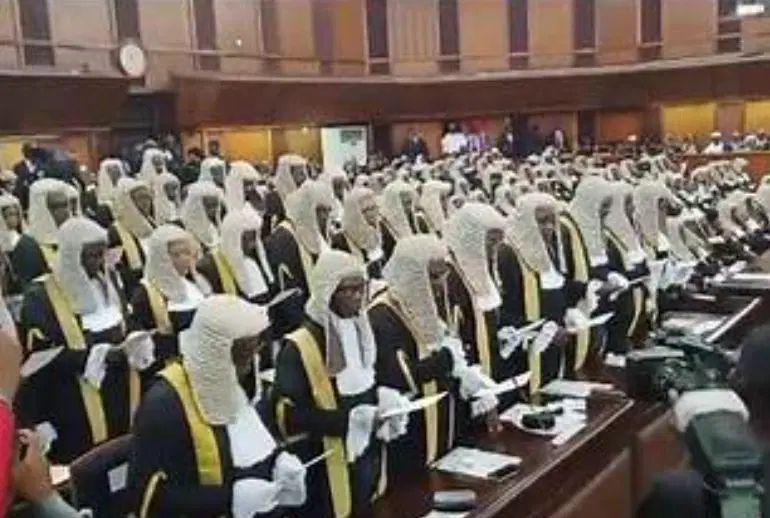Prof. Yemi Akinseye George, SAN, the Executive Director of the Centre for Socio-Legal Studies, recently spoke with Vanguard’s Law & Human Rights about various pressing issues within Nigeria’s judiciary, including the need for a Roll of Dishonour to hold judges accountable, the proposed changes to the powers of the EFCC and ICPC, and the backlog of cases facing the Supreme Court.
On the EFCC and ICPC’s Legal Status
The ongoing debate regarding the legal status of the Economic and Financial Crimes Commission (EFCC) and the Independent Corrupt Practices and Other Related Offences Commission (ICPC) has drawn significant attention. When asked about the contrasting opinions of prominent lawyers Femi Falana, SAN and Dr. Olisa Agbakoba, SAN, Prof. Akinseye George expressed support for the idea of elevating these agencies to constitutional bodies.
He stated, “If they argue that EFCC and ICPC should be written into the constitution… I agree with them. They should not just exist at the level of ordinary legislation.” He emphasized the importance of these agencies in holding powerful politicians accountable, citing their success in recovering significant sums of money from high-profile figures.
He vehemently opposed the notion that the EFCC lacks jurisdiction over state-level corruption, asserting that such arguments undermine accountability. “These are the only agencies that can call the big men in Nigeria to order,” he remarked, urging civil society to rally in support of strengthening the EFCC and ICPC rather than weakening them.
Addressing Judicial Appointments
On the topic of judicial appointments, Prof. Akinseye George responded positively to the suggestion made by Anthony Idigbe, SAN, that more Senior Advocates of Nigeria consider serving as judges. He recognized the value of diversifying the judicial pool, stating, “The advantage of having scholars and more legal practitioners on the court is obvious.”
He stressed that incorporating legal scholars into the judiciary would enrich Nigeria’s jurisprudence, as they would bring an intellectual perspective crucial for developing substantive law. Prof. Akinseye George noted the current overemphasis on procedural matters at the expense of advancing the substance of laws, arguing that expanding the pool from which judges are appointed would help address this imbalance.
The Need for Accountability in the Judiciary
Prof. Akinseye George also called for the establishment of a Roll of Dishonour to name and shame judges who fail to adhere to judicial precedents. He believes that this measure would enhance accountability within the judiciary and restore public confidence in the legal system.
He expressed concerns over the backlog of cases before the Supreme Court and emphasized the importance of the new Chief Justice of Nigeria (CJN) in addressing these challenges and redeeming the judiciary’s image.
In conclusion, Prof. Akinseye George’s insights shed light on the critical issues facing Nigeria’s judicial system and the importance of reinforcing anti-corruption agencies to uphold democracy and accountability.

